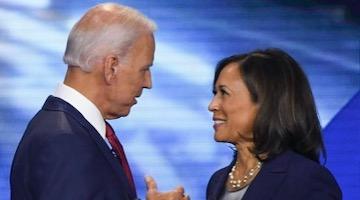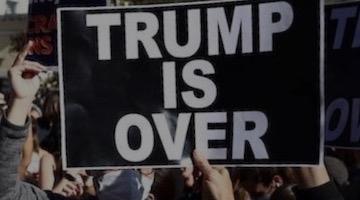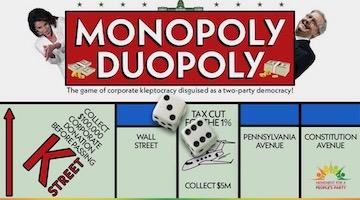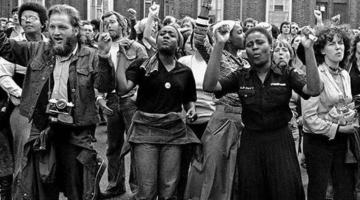A significant portion of Black males are “contrarians” that take positions at odds with the general Black political consensus – while Black women tend to take the communal approach.
“Black women are significantly more ‘communal’ (my term) than Black men in their political behavior.”
Corporate media are all abuzz about the relatively high numbers of Black men that voted for Donald Trump this election cycle. An NBC News poll of early and election day voters found that “eighty percent of Black men supported Joe Biden, down slightly from Hilary Clinton’s 82 percent of the Black male vote in 2016, but significantly lower than Barack Obama’s level of support among Black men in 2012 [87 percent] and 2008 [95 percent, just one point below Black women].” This year, ninety-one percent of Black women supported Joe Biden, down only slightly from the 94 percent that cast votes for Hillary Clinton in 2016 and the 96 percent of Black females that supported Obama in both of his presidential bids.
However, when it came to slicing and dicing this year’s Black male voter demographics, NBC’s numbers were downright strange – or, as the network put it: “There was an unusual relationship between education and how Black men voted this year.” According to the poll, Black men with some college but no degree voted for Biden at levels much like Black women, while Black males with both less and more formal education gave from 20 to 26 percent of their vote to Trump: high school only: 26 percent; bachelor’s degree: 22 percent; advanced degree: 20 percent. This makes no sense; why would Black men with an incomplete college education behave so differently at the polls than those that received degrees and advance degrees, and those with no college at all?
“Eighty percent of Black men supported Joe Biden.”
The weird breakdown casts some doubt on the poll’s reliability, but it is beyond question that Black men are more likely than Black women to break with the Democrats. Black women are significantly more “communal” (my term) than Black men in their political behavior – especially when “politics” is broadly defined to describe relations among humans. High levels of Black female participation in church and in social movements, is an aspect of communalism. The lived Black experience confirms that Black women are significantly more likely to join in behaviors that they believe are in the larger group interest, most especially regarding children. That same lived experience cannot fail to note that a significant portion of Black males are what I call “contrarians”: men that take positions at odds with the general Black political consensus – often quite loudly and ostentatiously. If voting for Obama had not been so universally seen as a “once in a lifetime” Black experience that could not be missed, the First Black President would not have gotten 95 percent of Black male support in 2008. The Black male “contrarian” vote kicked in later, when good reasons could be found to be angry with Obama and the Black Democratic echo-chamber – but only Black males actually voted Republican in significant numbers.
Many Black contrarians justify their support for Republicans by referencing Malcolm X, who castigated white liberals as “foxes” and white conservatives as “wolves,” and declared that: “The white liberals are more dangerous than the conservatives; they lure the Negro, and as the Negro runs from the growling wolf, he flees into the open jaws of the ‘smiling’ fox.” However, Malcolm was essentially saying, “a plague on both their houses” – a point the Black contrarians that vote Republican often forget.
“Black women are significantly more likely to join in behaviors that they believe are in the larger group interest.”
Trump did provide a substantive excuse for some Black men to vote for him. A number of Black males have cited Trump’s “First Step Act” which, as Vox.com reported, resulted in “more than 3,000 people” being released from prison while “more than 2,000 people — 91 percent of whom are Black — received sentencing reductions” because Trump’s measure “retroactively applied the Fair Sentencing Act of 2010 (a law Obama passed), reducing the sentencing disparity between crack and cocaine charges.” Obama refused to make the Fair Sentencing Act retroactive.
For some Black men, that was reason enough to pull the Republican lever – but their mothers, sisters and wives did not; they stuck with what they saw as the communal interest: to beat the White Man’s Party. Black women, and most Black men, will continue to seek communal safety from the racist hordes as long as they are presented with a duopoly choice between an overtly racist party and a party that claims to want “inclusion,” and to which the vast bulk of Black elected officials belong.
A significant and growing segment of young Blacks, however, refuse to accept that voting is the only politics that counts. They have seen how Democrats change their political tunes when confronted with masses of people on the move. Although the Democrats have no intention of keeping promises made under the duress of massed people’s power, the social movement’s articulation of demands broadens public perceptions of possibilities. The new order will not come from the voting booth, but when the duopoly corporate system is viewed as illegitimate by a critical mass of people.
“Young Blacks have seen how Democrats change their political tunes when confronted with masses of people on the move.”
Corporate media analysis of Black political behavior is almost uniformly bogus. At the turn of the 21st century Black and white operatives of corporate media were agreed that Blacks were becoming more conservative as they became more affluent. According to the corporate press, these relatively better-off Black folk were rejecting “old style, civil-rights-type” Black politicians in favor of a “new Black politics” that was less confrontational and more amenable to business-oriented solutions to social problems. There was absolutely no evidence of such a shift in political behavior among not-poor Black people, but facts were not allowed to intrude upon the corporate narrative. However, the weight of money does count in electoral politics. In 2002, when incumbent Black Congresspersons Earl Hilliard (AL) and Cynthia McKinney (GA) were massively outspent and defeated in primaries by little known corporate-backed challengers, and the mayor of Newark, New Jersey, was almost unseated by a first term councilman (Cory Booker) who somehow outspent him by two to one, the corporate media declared that their theory of growing Black conservatism had been proven.
Cynthia McKinney was the last of the “old-style” Black politicians to go down, that year. The corporate media made her primary race a national cause célèbre: she was too loud, too radical, too “Sixties.” When former Black Republican Denise Majette beat McKinney in a nearly half-white district, the national corporate media cheered. But Bruce Dixon and I, working at The Black Commentator, showed that McKInney had won more than 70 percent of the Black vote and handily defeated Majette in Black precincts of Stone Mountain, Georgia, one of the most affluent sections of the Dekalb County, the second most affluent majority Black county in the nation, behind Prince Georges County, Maryland, outside Washington DC. A white political scientist – a favorite of the Atlanta Journal-Constitution – later concluded that McKinney won a whopping 85 percent of the Black vote, and urged Majette to get to know Black people better or get out of politics.
“Cynthia McKinney was too loud, too radical, too “Sixties.’”
The corporate media’s theory was disproven, but they keep presenting variations on the theme, hoping that the power of money will make the numbers conform to their narrative. These days, the corporate press insists that there is something called “people of color” (POCs) -- and then speculates as to which way this invented grouping is leaning, politically. The capitalist press now routinely release polling data that conflates all “minorities” (another term for the amorphous POC), with the result that none of the constituent groups’ actual political proclivities are revealed, understood or respected – an outrageous example of white corporate hegemony in the raw.
The various POCs resident in the United States all have different histories and heritages of struggle. Their politics are energized by a universe of dynamics and -- most importantly for U.S. politics -- these ethnic/national constituencies are made up of people with very different, self-perceived relations to whiteness. A Cuban American whose family was self-consciously white before they left Cuba, is a very different political animal from a Mexican American mestizo, an Afro-Dominican American, a South Asian American of Hindu heritage, or a Chinese or Vietnamese American. And no group in the African diaspora shares the African American prism on race.
We will all find each other – and Anglo-white people -- in struggle.
BAR executive editor Glen Ford can be contacted at Glen.Ford@BlackAgendaReport.com.
COMMENTS?
Please join the conversation on Black Agenda Report's Facebook page at http://facebook.com/blackagendareport
Or, you can comment by emailing us at comments@blackagendareport.com


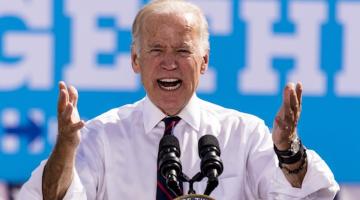


![Don’t [Mourn] Celebrate, Organize!](/sites/default/files/styles/nc_thumb/public/2020-11/Enteen_360x200.jpeg?itok=N1ROiKEs)
